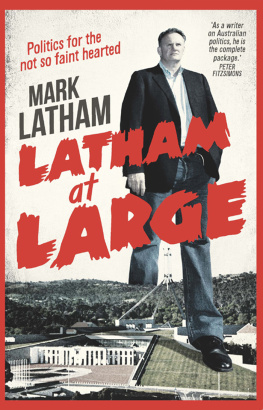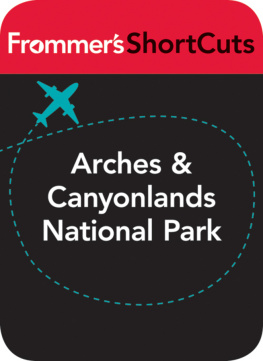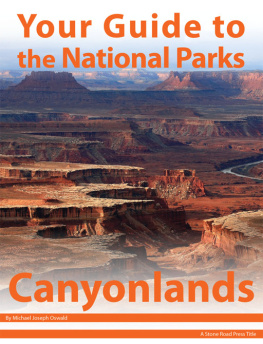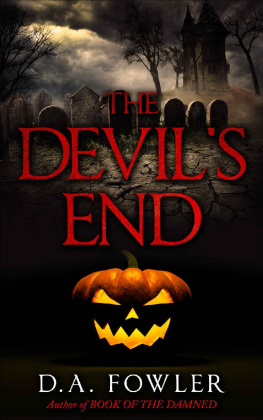
ONE WAY OUT
Rinker was ready, his hands close to his guns. There was a strange light in the mans eyes, a glowing mix of sadistic joy and the urge to kill that Tyree recognized only too well. He knew right then that this man would not let it go.
Then Dave Rinker went for his gun.
Tyree drew fast from the waistband, and his first bullet hit Rinker square in the chest. Another, a split second later, crashed into the mans forehead.
The big man convulsively triggered a round that thudded into the sod roof. Then his Colt dropped from his hand as he slammed backward onto the table, sending glass flying. Rinker tumbled off the table and fell flat on his back, his stunned eyes wide. The gunman tried to say something but the words wouldnt come. He rattled deep in his throat and blood bubbled scarlet and sudden over his lips. His glazed stare fixed on the glow of the lamp above his head . . . but by then he was seeing only darkness.

THE IMMORTAL COWBOY
This is respectfully dedicated to the American Cowboy. His was the saga sparked by the turmoil that followed the Civil War, and the passing of more than a century has by no means diminished the flame.
True, the old days and the old ways are but treasured memories, and the old trails have grown dim with the ravages of time, but the spirit of the cowboy lives on.
In my travelsto Texas, Oklahoma, Kansas, Nebraska,
Colorado, Wyoming, New Mexico, and ArizonaI always find something that reminds me of the Old West. While I am walking these plains and mountains for the first time, there is this feeling that a part of me is eternal, that I have known these old trails before. I believe it is the undying spirit of the frontier calling, allowing me, through the minds eye, to step back into time. What is the appeal of the Old West of the American frontier?
It has been epitomized by some as the dark and bloody period in American history. Its heroesCrockett, Bowie, Hickok, Earphave been reviled and criticized. Yet the Old West lives on, larger than life.
It has become a symbol of freedom, when there was always another mountain to climb and another river to cross; when a dispute between two men was settled not with expensive lawyers, but with fists, knives, or guns. Barbaric? Maybe. But some things never change. When the cowboy rode into the pages of American history, he left behind a legacy that lives within the hearts of us all. in
Ralph Compton
Chapter 1
Who the hell was Owen Fowler?
As he crossed a broken lava ridge, then rode through high green hills on his way to the three miles of brush flats that would take him to the town of Crooked Creek, the rider on the long-legged zebra dun asked himself that question time and time again.
And with good reason.
Less than four hours before, Owen Fowler, whoever he was, had cost a man his lifeand Chance Tyree, now staring moodily beyond the hills to the dusty, sunbaked flats, had killed him.
As they so often did, the gunfight had come up suddenlyand ended with deadly finality.
Tyree reined up in the shade of a post oak, hooked a leg over the saddle horn and built a smoke. He thumbed a match into flame, lit the cigarette, then, dragging deep, brought the shooting to mind, remembering how it had been. . . .
Twenty miles back along the trail, hed ridden into a settlement, a decaying annex to nowhere built along one bank of a wide, sandy creek. Even as such places went, the town wasnt mucha sod-walled saloon with a sagging timber roof, a general store of sorts, a scattering of tarpaper shacks and a small livery stable fronted by a corral built hit or miss of pine poles. The windmill that pumped water from the creek into an overflowing barrel at one side of the store screeched for oil, and a skinny yellow dog hunting sagebrush lizards nosed around in a clump of bunchgrass near the stable.
The dog lifted its head to look as Tyree swung out of the saddle while he was still a good twenty yards from the saloon. The animal studied the tall young rider for a few speculative moments, decided he was of little interest and went back to its exploring.
Keeping the dun between himself and the saloon, Tyree opened his saddlebags, lifted out a black gun belt and slid a Colt from the leather.
For a few moments the young man studied the worn blue revolver as it lay in the palm of his right hand. In the past, the weapon had seen much of gunfighting and there was within Tyree a growing desire to set the Colt aside, to move into a present clear of powder smoke where all the dying was done and past and the screams that echoed through his dreams at night would finally fade into silence.
There is little a man can do about the past, except forget it. There is, however, a great deal he can do about the present and the future.
With this thought uppermost in his mind, Tyree shoved the Colt into his waistband. A man armed and belted attracts attention. Eyes go to the iron on his hip and other men wonder: Is this just a drifting cowhand who carries a gun only to use the butt to pound nails, the barrel to stretch fence wire? Or is this man of a different stamp, a skilled and sudden fighter who has made his mark and killed his man?
All too often the answers to those questions were written in hot lead. Not wishful of inviting such speculation, Tyree took a hip-length, elk-skin coat from under his blanket roll and quickly shrugged into the garment, pulling it almost closed to cover the walnut handle of the Colt.
The coat was fringed, decorated on the shoulders and front with Kiowa beadwork. A few years back it had cost Tyree a good paint pony and a jug of whiskey. He figured hed gotten the best of that trade.
Tyree led his horse to the saloon, looped the reins around the hitching post and stepped inside.
The saloon was a single room, built tight and close, but Tyree was grateful for its relative coolness, willing to ignore the pervading stink of tobacco juice, man sweat and stale beer. Dust-specked light from a pair of unglazed windows angled onto the bara timber plank laid across a pair of sawhorses. From the ceiling hung an oil lamp, casting a dim orange halo in the gloom. An assortment of bottles stood on a shelf behind the bartender, a big-bellied man wearing a brocaded vest and dirty, collarless shirt. Above the shelf hung a printed sign that asked: HAVE YOU WRITTEN TO MOTHER?
To Tyrees right a small, thin man with the quick, sly eyes of a bunkhouse rat sat at the only table in the place, a bottle and glass in front of him. A couple of men stood at the bar, one middle-aged and nondescript, a puncher by the look of him, the other a tall, wide-shouldered towhead, Colts holstered low on his thighs, wearing his gunmans swashbuckling arrogance like a cloak.
All this Tyree took in at a glance, aware that he had in turn become the object of scrutiny.
The two at the bar and the man at the table were studying him closely, taking in his wide-brimmed Stetson, the Kiowa work on his coat and the jinglebob spurs chiming on the heels of his boots, the rowels cut from Mexican silver pesos. The boots themselves were custom-made, the expensive leather sewn sixty stitches to the inch, using an awl so fine that if it had accidentally pierced the boot makers hand the wound would have neither hurt nor bled.
Tyree knew that his outfit spoke loudly of Texas, and this was confirmed when the bartender smiled and asked, Fair piece off your home range, aint you, Tex?
Next page






